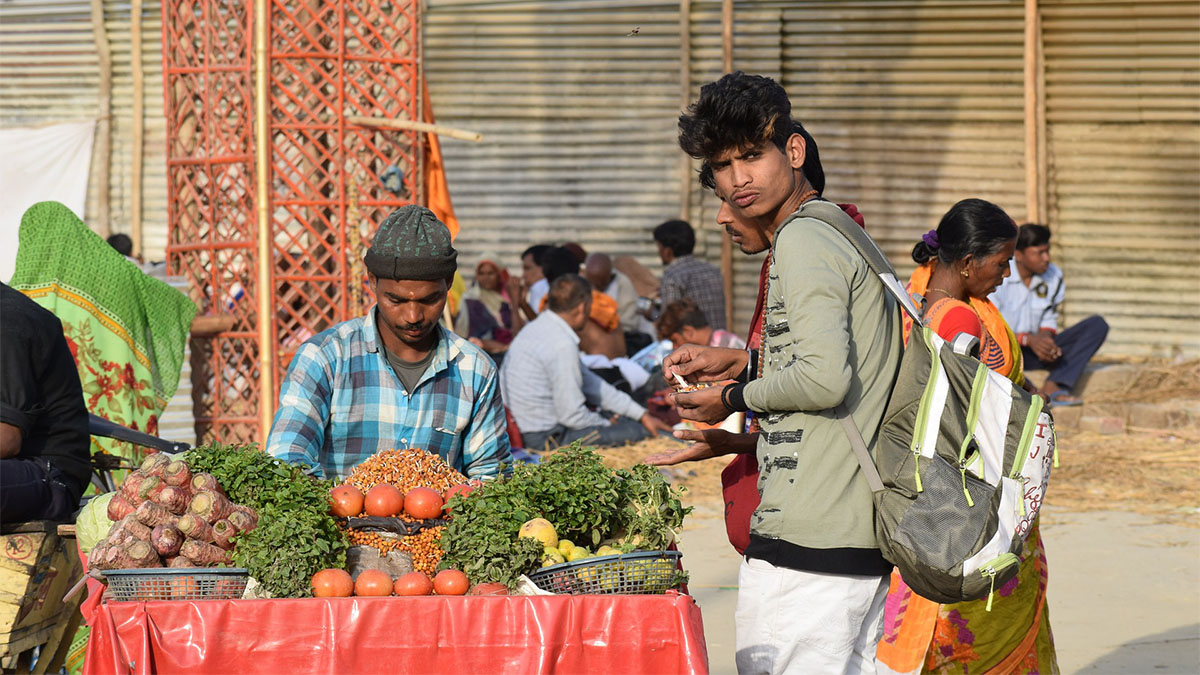
Life in a stairless multi-storey car park
Students and the caste system in India
My mother had always told me: education is your greatest indestructible asset in life. As I walked around the university campus that first afternoon, I felt a wave of anticipation. I had worked hard to get here. My results proved it. And now, this was it. This was my break – my chance to finally move ahead in the world, my chance to get that indestructible asset and make my mother proud.
But the dream didn’t last long. That night in the student hostel, the harsh reality hit.
My accent gave me away first. Then they asked what’s your good name? And of course, they knew. I was a Dalit. Some of the boys started mocking me. They told me I was only there so that the university could meet their quota for Dalit caste enrolments. Quota. It became my unwanted nickname.
This wasn’t new for me. I’d been the victim of discrimination my whole life. But somehow I’d hoped university might be different.
Lawyers and toilet cleaners
For many students in India, the caste system will significantly shape their university experience – and indeed their whole life. But for students outside India, caste might be an unfamiliar concept.
The caste system is India’s ancient societal hierarchy. It divides up the people into different classes, or castes. A student from a high caste is the most privileged in terms of their status, education and career prospects. They might become politicians or lawyers or doctors.
The Dalit caste – illustrated above – comes below the four main castes. They are known as the ‘untouchables’. Typically, they do the ‘untouchable’ jobs, like disposing of dead animals and cleaning toilets. A young person from the Dalit caste has very little chance of getting a place at university. They cannot change their caste. The system has been described as a multi-storey car park with no stairs or elevators – no way of moving up or down. You stay in the caste you were born into.
There are other disadvantaged castes in India, referred to collectively as Other Backward Class (OBC).
The devastating results
But what about the student in our story? Didn’t he make it to university?
What his classmates said is likely to be true. Government and educational institutions now reserve a certain number of positions for people from ‘backward’ castes, in an attempt to reverse some of the disadvantage they have in society. But still, the issue remains. Discrimination persists, with devastating results.
In May 2019, a young graduate doctor committed suicide after allegedly being harassed by three senior doctors of higher castes. It is by no means the first story of its kind. But far more common are the stories that never make it into the news. The scornful looks, the cruel comments, the unfair exam marking, the frustrated dreams: this is everyday life for young OBC people in India.

Christians who care
So what can be done? What is the biblical response to caste? How should Christian students respond today? Two UESI graduates feel deeply about this issue and shared their reflections:
Get talking!
Ignorance about the issues surrounding caste is a huge problem. Many universities in India already have anti-caste engagement groups. Christian students should join such groups and contribute to the conversations with a biblical worldview. Or Christians should start such groups if they don’t already exist – as we did in the southern Indian city of Chennai. The university is a fantastic place to facilitate dialogue and challenge the status quo. It should be Christian students taking the initiative to speak out, inviting students from all different castes into the conversation.
Make the invisible visible
One powerful sign that we have the love of our invisible God, is when we love our visible neighbours impartially. We may be studying alongside the disadvantaged and oppressed without ever thinking: are they visible? Are their concerns talked about? Is their worldview represented? Are their research papers recognised?
Christian students should do what they can to facilitate an environment where students from all caste backgrounds are included, heard and respected. When caste-based violence goes unreported or university professors display caste-based favouritism, it is for the Christian student to make the invisible visible.
Steward our university learning
The negative effects of the caste system can be seen throughout every aspect of society. Will the Christian student choose to use their discipline to help? Could an engineer find innovative sanitation solutions to replace manual scavenging? Could an arts student create a movie or a piece of music that subverts a certain caste stigma or prejudice, or that celebrates the beauty or unity found in the culture of another caste? Could an architect look into slum development housing projects? Could a sociologist re-write the history books to represent the disadvantaged authentically?
The possibilities to steward our university learning to help the disadvantaged are endless!
Shape our student groups
What do our student fellowship groups say about our attitude to the oppressed around and among us? Are we making an effort to study, understand and discuss inter-caste histories in our group? How accountable is our group with regards to fighting caste and similar social discriminations? Do we include a teaching of caste as part of Christian discipleship curriculum to young believers? How inclusive are our student, graduate and staff groups? Do we take measures for affirmative action and intentional representation?
It is clear that such an engrained social reality will not be changed overnight. But, as in every culture and society, Christian students and graduates have the responsibility and mandate to be agents of change in their generation.

